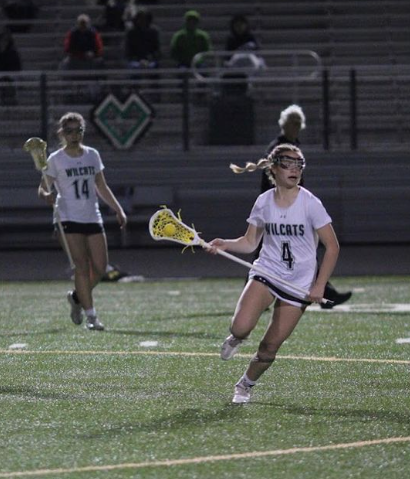After arriving at my fifth-period class merely a few seconds after the late bell and getting sent to the office, I was herded into the student commons with about 40 other students who had just arrived from G-square holding Chipotle paper bags and sipping soda from plastic cups. An administrator spoke through an electronic megaphone, threatening to contact our parents and implement lunch detentions. By the time everyone had been rounded up, 10 minutes had passed, and the assistant principal was scanning each person’s ID one by one. We were handed pink slips with the incorrect time written on them and sent back to class. When I returned, I’d missed the first 15 minutes of class.
WJ’s new policy requires teachers to prevent students from entering their first and fifth-period classes after the late bell rings without a pass. They are redirected to the main office to scan their student ID to record their tardy in the system, retrieve a pink “unexcused tardy” slip and return to class. This, in turn, extends the five minutes of tardiness into a round trip of 10-15 minutes, and by their return to class, students will have missed almost a third of the instructional time. The hassle falls onto the students, the teachers, the main office staff and every other student waiting in line: nobody benefits.
Although I commend Administration for the system they created, by funneling stray students to the main office and thoroughly recording their tardiness, they have been able to efficiently weed out the students showing patterns in their attendance. The intentions behind this policy were in students’ best interests, meant to get them in class on time to optimize their learning experience.
“Our new sign-in system using IDs helps us organize information easier, and each admin will get their list of kids that have signed in tardy, and what they’re looking for is patterns and basically repeat tardies to then speak to that student [and] help them be more successful getting to school and class on time,” office secretary and previous attendance secretary Maia Lawn said.
However, the new policy has had significant unexpected effects on students who arrive late to class, not because of apathy, but due to other reasons such as a prolonged bathroom break, or simply not hearing the first bell, causing students to lose significant amounts of class time and delay their arrival to class even further.
Primarily, attendance should be overseen by the staff members who know their students best: teachers. Just as teachers dictate whether or not to fail a student who fails to attend their class, they should be given the choice to send a late-coming student to the office or not. They know who consistently misses class and who makes an effort to arrive on time. For example, my first period teacher allows students into the classroom depending on the time passed after the late bell. If the student is only two minutes late, he marks the student present. If the student is 10 minutes late, however, he’ll send them to the office for a slip. Mandating the rule to send all late students to the office has become a punishment for not just the apathetic, but also good students who actually try to make the most out of their class time.
By no means should the new policy be abolished, but with change comes reform, and when discussing matters of time, efficiency is crucial. Administration has done an exceptional job of tracking down the slackers, but everyone else is suffering as well. Students need to be in class, and pink slips are preventing that.










































